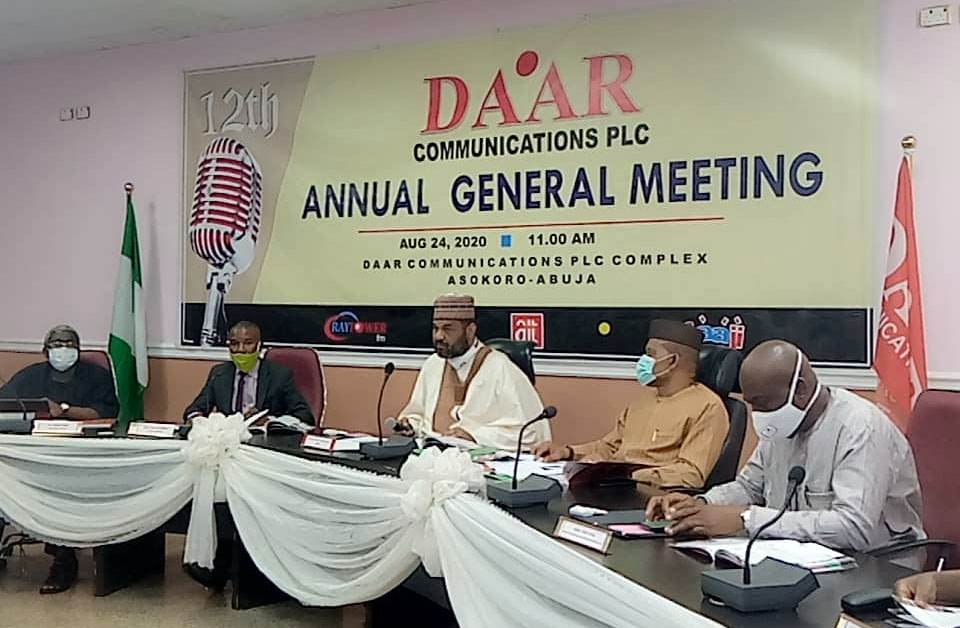Business
Why we want to replace BVN with NIN – Minister

The Minister of Communications and Digital Economy, Dr Isa Pantami, has explained why the Federal Government wants to replace Bank Verification Numbers with the National Identity Numbers.
According to him, the BVN is a regulator’s policy, while NIN is a law.
“The strength of the law wherever you go is not the same with a policy of one institution,” he added.
Already, the minister told journalists after a facility tour and inspection of the ongoing NIN enrolment exercise in Abuja that he had made a presentation to the National Economic Sustainability Committee and drew the attention of the Central Bank of Nigeria’s Governor on the need to replace BVN with NIN.
Pantami noted that the BVN was only applicable to those who had bank accounts while NIN was for every citizen and legal residents in the country.
“The BVN is our secondary database, while NIN and the database is the primary one in the country that each and every institution should make reference to NIMC,” he said.
Pantami boasted that Nigeria was at the forefront in Africa in regard to data protection regulations, claiming that the level of security in the entire database was 99.9 per cent.
He said, “That is why we came up with the Nigeria Data Protection Regulation that we always enforce and this is applicable to the database at our disposal.
“We take care of it and make sure that security is excellent and we don’t allow anybody to compromise the content because it is a trust from our citizens given to us.”
Meanwhile, Pantami has called on the organised private sector to enhance collaboration with government, adding that the economy of Nigeria is dependent on how it faired.
Pantami said this in his address at National Directorate of Employment/Federal Government’s Special Public works programme commissioning where 11,000 unemployed youth in Gombe State were engaged with work tools.
He said an enabling environment was key to harvesting the gains associated with private sector, stressing that the current dispensation had provided friendly atmosphere for businesses to thrive.
The minister said, “The economy of Nigeria relies more on the private sector than the public sector.
“If you look at our GDP collectively, it is approximately around $450bn which is the highest in Africa. If you compute, you will discover that the entire stage of government particularly the federal level is approximately around 8.5 per cent, while that of the private sector is more than 91.5 per cent. Government cannot do without collaborating with the private sector.
“What government must do is to provide enabling environment for the private sector to thrive and this is what we have been doing every day to come up with policies for the private sector to thrive.
“This is what brought about tax holiday, visa on arrival in Nigeria, online registration of companies by CAC.”
Business
Nigerian Equities Post World’s Second-Best Dollar Returns in 2026, Recover $21bn

Nigerian Equities Post World’s Second-Best Dollar Returns in 2026, Recover $21bn
Nigerian equities have emerged as one of the best-performing stock markets globally in 2026, delivering the world’s second-best dollar returns after years of currency-driven losses and weak investor sentiment. The local market has risen 31 percent in dollar terms this year, helping investors recoup about $21 billion in market value lost following the sharp naira devaluation in 2024.
Market capitalisation on the Nigerian Exchange Group has climbed to approximately $84 billion, representing a 58 percent increase from levels recorded before the currency collapse. According to Bloomberg, Nigeria’s benchmark equity index has surged 31 percent year-to-date, significantly outperforming global peers. The rally far outpaces the 11 percent gain in the broader emerging-market index and the 6.4 percent advance recorded by frontier-market stocks.
Analysts attribute the sharp rebound to a combination of stronger corporate earnings, exchange-rate stability, and renewed investor confidence following wide-ranging economic reforms. Olabode Williams, an analyst at SBG Securities Ltd, said companies hardest hit by the naira’s earlier collapse have now stabilised their balance sheets and returned to profitability. He noted that investors are increasingly pricing in growth as corporate fundamentals improve, adding that Nigerian equities are becoming more attractive to both local and foreign investors after years of underperformance.
READ ALSO:
- Ramadan Begins in Nigeria as Sultan Confirms Crescent Sighting
- Deadlock at National Assembly as House Snubs Electoral Act Bill Meeting on E-Transmission Clause
- Maikori Accuses Ex‑Governor El‑Rufai of Persecution Over 2017 Tweet
The rally has also been supported by a firmer naira, which has appreciated by more than seven percent against the dollar in 2026, ranking as the world’s second-best performing currency among those tracked by Bloomberg. The currency rebound has strengthened dollar-based equity returns and helped reverse losses triggered by earlier exchange-rate volatility.
Foreign participation has increased sharply alongside the rally. Data from the Nigerian Exchange Group shows that non-Nigerian trading in local equities reached a 19-year high in 2025. Transactions by foreign investors tripled to ₦2.65 trillion ($1.97 billion) from ₦852 billion in the previous year, reflecting renewed global appetite for Nigerian risk assets.
Market analysts believe the rally could extend further if major listings materialise. Gloria Fadipe, an analyst at CSL Stockbrokers Ltd, a unit of FCMB Group Plc, said the market could exceed $100 billion in valuation this year if large-scale listings proceed. She noted that potential listings of Dangote Refinery and Dangote Fertiliser could deliver capital gains of up to 34 percent while deepening market liquidity.
The rebound comes amid broader macroeconomic reforms introduced by Bola Tinubu, including the unification and liberalisation of the foreign-exchange market. While the reforms initially triggered volatility and inflationary pressure, economists say they are restoring policy credibility, improving capital inflows, and repositioning Nigerian assets for sustained long-term growth.
Nigerian Equities Post World’s Second-Best Dollar Returns in 2026, Recover $21bn
Business
Naira Maintains Stability Against Dollar as CBN FX Measures Keep Markets Calm

Naira Maintains Stability Against Dollar as CBN FX Measures Keep Markets Calm
The Nigerian Naira showed relative stability against the United States Dollar during Tuesday, February 17, 2026, trading sessions in both official and parallel foreign exchange markets. After a weekend of consolidation, the local currency continued to hover around the ₦1,350 band, reflecting the effectiveness of the Central Bank of Nigeria’s (CBN) liquidity management policies.
In the official Nigerian Foreign Exchange Market (NFEM), the Naira opened at ₦1,351.18 per dollar and adjusted slightly by mid-morning to ₦1,354.86, a movement attributed to early-week corporate demand. Analysts say the Electronic Foreign Exchange Matching System (EFEMS) and the Monetary Policy Rate (MPR) have helped anchor the official exchange rate below the ₦1,400 mark for over two weeks, providing a predictable environment for businesses and investors.
READ ALSO:
- 28 Wedding Guests Die in Separate Road, Boat Accidents in Enugu, Kebbi
- FG, Progressive Governors Forum Pledge ₦8bn Relief for Singer Market Fire Victims
- Former INEC REC Warns of “Chaos” in 2027 Over E-Transmission of Election Results
Meanwhile, in the parallel market, the Naira traded at a traditional premium, ranging from ₦1,380 to ₦1,440 per dollar in commercial hubs like Lagos, Abuja, and Kano. Traders reported sufficient dollar supply for personal travel and small-scale business transactions, noting that the narrowing gap between official and parallel rates has discouraged speculative hoarding and improved market efficiency.
Recent CBN interventions, including expanding access to licensed Bureau De Change operators and enforcing regulatory compliance, have strengthened FX liquidity, allowing for more transparent price discovery. Combined with Nigeria’s moderating inflation rates and robust external reserves of around $49 billion, these measures have bolstered confidence in the Naira and helped limit excessive volatility.
Market watchers, however, caution that challenges remain, including uneven foreign exchange inflows and persistent demand pressures in the informal sector. Sustaining the Naira’s stability in the coming weeks will depend on continued policy consistency, enhanced liquidity provision, and investor participation across sectors.
Summary of Rates on February 17, 2026:
- Official NFEM Opening: ₦1,351.18 per $1
- Official NFEM Mid-Morning: ₦1,354.86 per $1
- Parallel Market Range: ₦1,380 – ₦1,440 per $1
Analysts remain cautiously optimistic that the Naira can maintain its stability and momentum for the remainder of February, provided that external reserves and FX supply measures continue to support the market.
Naira Maintains Stability Against Dollar as CBN FX Measures Keep Markets Calm
Business
Dokpesi Jr, Ex-GMD Akiotu Clash Over DAAR Communications Mgt Restructuring

Dokpesi Jr, Ex-GMD Akiotu Clash Over DAAR Communications Mgt Restructuring
A public dispute has erupted at DAAR Communications Plc as Chairman Raymond Dokpesi Jr and former Group Managing Director, High Chief Tony Akiotu, publicly clashed over the company’s recent management restructuring, raising questions about corporate governance and the legacy of Nigeria’s pioneering media organisation.
Speaking in Abuja, Dokpesi Jr defended the executive shake-up, stating he has “no regrets” about the decisions made following the sudden death of the company’s founder, Raymond Aleogho Dokpesi Sr. He described the departure of long-serving executives as a difficult but necessary step to ensure stability, investor confidence, and future growth. The chairman noted that the company faced challenges after his father’s passing, including declining share value and reduced investor confidence, and emphasised that the transition process was carefully managed to minimise tension.
READ ALSO:
- EFCC Holds El-Rufai Overnight Over ₦423bn Kaduna Corruption Allegations
- Troops Intercept ₦37m Terror Funds, Phones, ISWAP Logistics in Borno Operations
- X Restored After Global Outage Disrupts Millions Worldwide
Dokpesi Jr acknowledged that the exiting executives were owed salary arrears and other entitlements, which the organisation has been settling, amounting to billions of naira accumulated over their 15-year tenure. He explained that the restructuring allowed the company to prioritise outstanding obligations and improve operational efficiency, with most business units now financially independent and others expected to achieve autonomy before the end of the year. “I will continue to apologise to Mr Tony Akiotu and the affected management staff for any hurt feelings,” he said, “but I have no regrets — the results validate the decision.”
In response, Akiotu criticised Dokpesi Jr’s statement as unfair and misleading. He argued that it was inappropriate for a chairman who presided over board meetings and approved management memos to later accuse the same leadership team of mismanagement. Akiotu highlighted that all major operational and financial decisions during his tenure were subject to board approval, and that the team had contributed significantly to the company’s growth into a national and international media brand, with operations spanning Nigeria, the United Kingdom, and the United States.
Akiotu also noted that while executive retirements may be permissible under corporate regulations, the public portrayal of their tenure overlooked the sacrifices made to build one of Nigeria’s pioneering broadcast institutions. “If Raymond Dokpesi Jr believes we played no part in the growth of the company, we leave it to Nigerians and history to make that judgment,” he said.
Industry observers say the dispute underscores ongoing debates about corporate governance, leadership succession, and strategic reform within DAAR Communications, which continues to be a major player in Nigeria’s broadcast media sector. Both parties have called for dialogue, but the public nature of the clash has drawn attention across the media and business community, with speculation over potential boardroom changes and the company’s future direction.
Dokpesi Jr, Ex-GMD Akiotu Clash Over DAAR Communications Mgt Restructuring
-

 News1 day ago
News1 day agoSaudi Arabia Confirms Sighting of Ramadan Crescent, Fasting Begins Wednesday
-

 metro1 day ago
metro1 day agoLagos Woman Shares Ordeal After Alleged Rape, Sparks Nationwide Outcry
-

 metro3 days ago
metro3 days agoUS Freezes Assets of Eight Nigerians Over Boko Haram, ISIL, Cybercrime Links
-

 News1 day ago
News1 day agoRamadan Begins in Nigeria as Sultan Confirms Crescent Sighting
-

 Entertainment3 days ago
Entertainment3 days agoMystery in Lekki: Police Probe Death of Two Nollywood Crew Found Lifeless in Parked Car
-

 metro3 days ago
metro3 days agoTerror in Lagos Traffic: Cutlass Gang Unleashes Mayhem on Mile 12–Ketu Road
-

 Auto3 days ago
Auto3 days agoAppeal Court Ruling on VIO Limited to Abuja, Not Lagos — LASG
-

 metro1 day ago
metro1 day agoSeven Killed in Horrific Crash at Ota Toll Gate












You must be logged in to post a comment Login